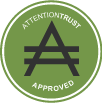Ethnographic investigations of « ordinary blogs and bloggers» by B. Nardi, D.J. Schiano, M. Gumbrecht and L. Swartz provide insight into the practices, experiences and motivations of individuals and groups who publish a blog for a small audience.
søndag, december 19, 2004
lørdag, december 18, 2004
Danah Boyd: Broken Metaphors: Blogging as Liminal Practice
The goal of this paper is to reveal tensions underlying conceptualizations
First, I introduce how metaphorical constructions of blogging are being
limiting research on blogging by obfuscating an understanding of
Ong’s ‘secondary orality’ to discuss how blogging complicates
orality and textuality. Additionally, I discuss other dichotomous moves
blogging such as spatiality and corporeality, artifact and practice,
depictions of their practices to shed light on the tensions in each.
The goal of this paper is to reveal tensions underlying conceptualizations
First, I introduce how metaphorical constructions of blogging are being
limiting research on blogging by obfuscating an understanding of
Ong’s ‘secondary orality’ to discuss how blogging complicates
orality and textuality. Additionally, I discuss other dichotomous moves
blogging such as spatiality and corporeality, artifact and practice,
depictions of their practices to shed light on the tensions in each.
onsdag, december 15, 2004
Flix.dk - Weblogs skaber ny avisjournalistik
Kirsten Hofset skriver på Flix.dk (en webavis der skrives af læserne og læses af skribenterne. Danmarks første open source-avis)
"Dagbladene har taget bloggerbegrebet til sig. Det der startede som et undergrundspip på nettet, erkendes nu af flere dagblade som et magtfuldt medie. Og nu forsøger de at kopiere det."
Kirsten Hofset skriver på Flix.dk (en webavis der skrives af læserne og læses af skribenterne. Danmarks første open source-avis)
"Dagbladene har taget bloggerbegrebet til sig. Det der startede som et undergrundspip på nettet, erkendes nu af flere dagblade som et magtfuldt medie. Og nu forsøger de at kopiere det."
mandag, december 13, 2004
e-klumme: Etiske regler for weblogs!?: "I den senere tid er der opstået en diskussion om, hvorvidt, der skal opstilles nogle etiske regler for biblioteks weblogs. "
fredag, december 10, 2004
A Painting a Day: "A Painting a Day
A Paintingblog by Duane Keiser... Some of the first few are older pieces (I was testing my posting process etc.) From 12/11/2004 I will be painting/posting a new painting everyday."
A Paintingblog by Duane Keiser... Some of the first few are older pieces (I was testing my posting process etc.) From 12/11/2004 I will be painting/posting a new painting everyday."
Blog Ethics Analysis 2004: "Blog Ethics Analysis 2004
I am a doctoral student at the University of North Carolina School of Journalism and Mass Communication. I am researching ethics in the blogosphere, and I am using this blog to gather the opinions and insights of active bloggers. I invite you to answer the following questions by publicly posting your comments or by e-mailing me at mgkuhn at email dot unc dot edu."
I am a doctoral student at the University of North Carolina School of Journalism and Mass Communication. I am researching ethics in the blogosphere, and I am using this blog to gather the opinions and insights of active bloggers. I invite you to answer the following questions by publicly posting your comments or by e-mailing me at mgkuhn at email dot unc dot edu."
torsdag, december 09, 2004
Merriam-Webster Online: "Based on your online lookups, the #1 Word of the Year for 2004 was
Blog noun [short for Weblog] (1999) : a Web site that contains an online personal journal with reflections, comments, and often hyperlinks provided by the writer"
Blog noun [short for Weblog] (1999) : a Web site that contains an online personal journal with reflections, comments, and often hyperlinks provided by the writer"
søndag, december 05, 2004
Mathemagenic: learning and KM insights: " Blogging as breathing or how to find time for blogging?
(Friday, December 03, 2004)
On the use of time for blogging
The most asked question when I speak to people who don't blog, is where I get the time to do it.
In Umea we discussed time consumption and listed a number of time-consuming factors. Time is needed:
* To get used to the tools
* To grow a network
* To get into action with others
* To grow trust
* For getting to know and find useful (re)sources
* To find your voice (for yourself, for others)"
This seems like a list of things that apply to a lot more situations than just blogging.
En tankevækkende tekst, som peger på det væsentlige forhold, at blogging og netværk ikke bare opstår i løbet af no time. Det skal læres og dyrkes.
(Friday, December 03, 2004)
On the use of time for blogging
The most asked question when I speak to people who don't blog, is where I get the time to do it.
In Umea we discussed time consumption and listed a number of time-consuming factors. Time is needed:
* To get used to the tools
* To grow a network
* To get into action with others
* To grow trust
* For getting to know and find useful (re)sources
* To find your voice (for yourself, for others)"
This seems like a list of things that apply to a lot more situations than just blogging.
En tankevækkende tekst, som peger på det væsentlige forhold, at blogging og netværk ikke bare opstår i løbet af no time. Det skal læres og dyrkes.
What Could Your Company Do With a Blog?: "WHAT COULD YOUR COMPANY DO
WITH A BLOG?
How Smart Companies Use Blogs for Marketing and PR Success and How You Can Too"
WITH A BLOG?
How Smart Companies Use Blogs for Marketing and PR Success and How You Can Too"
lørdag, december 04, 2004
Joi Ito's Moblogging, Blogmapping and Moblogmapping related resources as of 6/10/2003
Artikler, event og resourcer.
Artikler, event og resourcer.
Boing Boing: Le moleskine blog: "On this wonderful little blog, a young man in Bordeaux, France sketches his way through life in a series of moleskine journals. He scans the results, and posts them online for all to see. Simple things like this bring me endless delight in the power of the web. It's a microscope. It's a telescope. Its lens captures a field of infinitely varying depth. Link to Beleg's moleskine online, Link to his main blaugue, and link to the Wandering Moleskine Project. "
fredag, december 03, 2004
Boing Boing: MSN Spaces: seven dirty blogs: "Earlier today, I posted comments from a BoingBoing reader about the fact that MSN Spaces, Microsoft's new blogging tool, censors certain words you might try to include in a blog title or url. If you can't speak freely on a blog, what's the point of having one? This demanded a full investigation.
Using my existing MSN Passport account, I attempted to create a number of blogs, one after the other. The results of which titles passed and which were banned may surprise you -- or at least generate a few Beavis-and-Butthead snorkles. Each of the linked test-titles in this BoingBoing post points to to an actual, unmodified screenshot of the corresponding test blog I created (or was denied the ability to create) using MSN Search."
Using my existing MSN Passport account, I attempted to create a number of blogs, one after the other. The results of which titles passed and which were banned may surprise you -- or at least generate a few Beavis-and-Butthead snorkles. Each of the linked test-titles in this BoingBoing post points to to an actual, unmodified screenshot of the corresponding test blog I created (or was denied the ability to create) using MSN Search."
onsdag, december 01, 2004
CNN.com - Publisher: 'Blog' No. 1 word of the year - Nov 30, 2004: "Blog will be a new entry in the 2005 version of the Merriam-Webster Collegiate Dictionary, Eleventh Edition. The complete list of words of the year is available at http:/www.merriam-webster.com/info/04words.htm"
HUM 202 -- Toward a Literacy of Cooperation: "Toward a Literacy of Cooperation
HUM 202"
Cybersociology author Howard Rheingold and Andrea Saveri, a director at the Institute for the Future, have teamed up to host a course at Stanford University that will undoubtedly be incredibly engaging. The course, Toward A Literacy of Cooperation, is open to public enrollment and kicks off January 5. Howard and Andrea have lined up a dynamite list of guest speakers including Paul Hartzog, Wikipedia founder Jimmy Wales, and Ross Mayfield of SocialText.
We are currently having the reader built by the Stanford Bookstore. Look for a list of readings on the site later this week.
HUM 202"
Cybersociology author Howard Rheingold and Andrea Saveri, a director at the Institute for the Future, have teamed up to host a course at Stanford University that will undoubtedly be incredibly engaging. The course, Toward A Literacy of Cooperation, is open to public enrollment and kicks off January 5. Howard and Andrea have lined up a dynamite list of guest speakers including Paul Hartzog, Wikipedia founder Jimmy Wales, and Ross Mayfield of SocialText.
We are currently having the reader built by the Stanford Bookstore. Look for a list of readings on the site later this week.
Article: The 'blog' revolution sweeps across China�| New Scientist
(19:00 24 November 04, Special Report from New Scientist Print Edition.)
It took a chance online encounter between a software engineer from Shanghai and a teacher in a remote province of China to start shaking up the power balance between the people and the government of the world’s most populous nation.
In August 2002, Isaac Mao, who worked at the Shanghai office of the chip maker Intel, was one of only a handful of people in China who had heard the word “blog”. A regular web surfer, he was fascinated by the freedom these online journals gave to ordinary people to publish both their own and their readers’ views online.
Surfing the US website blogger.com, Mao was thrilled to find Zheng Yunsheng, a teacher at a technical school in Fujian province. He left a message on Zheng’s blog, and two weeks later Mao and Zheng started CNBlog.org, China’s first online discussion forum about blogging technology and culture.
They soon gathered a small but devoted group of participants, many of whom went on to develop the technology that makes blogging possible for China’s half-a-million bloggers.
(19:00 24 November 04, Special Report from New Scientist Print Edition.)
It took a chance online encounter between a software engineer from Shanghai and a teacher in a remote province of China to start shaking up the power balance between the people and the government of the world’s most populous nation.
In August 2002, Isaac Mao, who worked at the Shanghai office of the chip maker Intel, was one of only a handful of people in China who had heard the word “blog”. A regular web surfer, he was fascinated by the freedom these online journals gave to ordinary people to publish both their own and their readers’ views online.
Surfing the US website blogger.com, Mao was thrilled to find Zheng Yunsheng, a teacher at a technical school in Fujian province. He left a message on Zheng’s blog, and two weeks later Mao and Zheng started CNBlog.org, China’s first online discussion forum about blogging technology and culture.
They soon gathered a small but devoted group of participants, many of whom went on to develop the technology that makes blogging possible for China’s half-a-million bloggers.
Abonner på:
Opslag (Atom)




